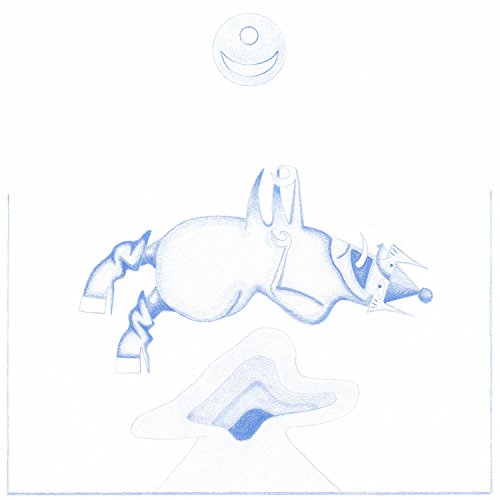
Devendra Banhart
Ape In Pink Marble
Release Date: Sep 23, 2016
Genre(s): Pop/Rock
Record label: Nonesuch Records
Music Critic Score
How the Music Critic Score works
Buy Ape In Pink Marble from Amazon
Album Review: Ape In Pink Marble by Devendra Banhart
Great, Based on 9 Critics
Based on rating 4/5
Mala Ape In Pink Marble. kind of.
Based on rating 8/10
Singer/songwriter and visual artist Devendra Banhart emerged in the early 2000s and was soon considered an icon of the freak folk movement. In the years that followed, he expanded and experimented with his sound, perhaps hitting peak meandering with 2007's Smokey Rolls Down Thunder Canyon. Still touching on multiple genres, 2013's Mala offered a more cohesive set.
Based on rating 8/10
It's assumed that with age comes maturation, the calming of crazed minds, the honing of hormones, settling, security and, finally, some focus. This even applies to the wild ones, but luckily doesn't always include the loss of childish curiosity. Devendra Banhart is still every bit the boyish bringer of freak-folk that contacted Vashti Bunyan (whom he continues to thank in his liner notes) over a decade ago, but his canvases are less Pollocked.
Based on rating 8/10
Devendra Banhart is an artist. Recently, the music for which he is widely recognized has been demarcated by periods of his lesser known visual art, where open hearted interaction with forms and figures may be shaping his recordings. Ape in Pink Marble, which sounds like it could be the title of a painting, comes after the making of an art book collecting Banhart's works of more than a decade.
Based on rating 3.5/5
For an artist who used to stake his entire being on conveying an uproarious, positively childlike level of glee throughout his work, Devendra Banhart has aged into quite the gentleman. Banhart’s beginnings as a yodeling folkster may have initially seemed poised to become a saccharine, grating gimmick as the years went on, yet time has proven Banhart to be a songwriter in a class of his own, free from whatever aesthetic prison the namecallers of “freak-folk” might try to impose on him. Almost every album Banhart has released to date has borne a kind of beautiful imperfection; his music has never felt rushed or bogged down by ego, but rather it has managed to exude a joyousness and a contentment to simply be what it is, no matter the length of his beard.
Based on rating 7/10
The last time we heard from Devandra Barnhart was 2013’s Mala, an album that received almost universal critical acclaim, sparked talks of being his greatest album to date, and spawned quite possibly his the most popular record in his entire catalogue, 'Never Seen Such Good Things'. Ever since 2009’s Smokey Rolls Down Thunder Canyon, Barnhart has somewhat slowed down his pace of releasing records. Whereas they used to come back to back, Barnhart is taking a few years in between projects, and consequently his latter material has been some of the best output of his lengthy career.
Based on rating 6.6/10
The cornerstone of Devendra Banhart’s career was an album called Cripple Crow. Released in 2005, the 22-track record presented Banhart as an artist brimming with ideas, surrounded by friends, and firmly at the center of a movement that was beginning to gain traction outside his indie bubble. Since then, Banhart’s career has been characterized by less momentous events: a DOA major label debut, some forgettable collaborations, a few art books.
Based on rating 3/5
For the most part, the songs on sometime freak-folk singer-songwriter Devendra Banhart’s ninth album are downbeat but heartfelt, his wry words backed by minimalist guitar lines and unobtrusive synths. Indeed, there’s so little going on in the mid-section of Linda that the sparse guitar strums end up sounding as lonely as the song’s protagonist. Jonathan Richman homage Jon Lends a Hand (“Oh Jonathan, Jonathan/These are your chords/I’m borrowing them”), meanwhile, is genuinely charming.
Opinion: Very Good
In the three years since he released Mala, more and more artists have found space for themselves in the surrealist, freak-folk world Devendra Banhart has inhabited for over a decade. Smartly, instead of trying to shout over the din of a packed room, he dials things back, and Ape in Pink Marble feels inviting and intimate, if a bit somber. In an interview with The Current, Banhart downplayed the notion that his music had evolved, but acknowledged that while he may be using the same tools, he is using them to explore new ground.
'Ape In Pink Marble'
is available now

